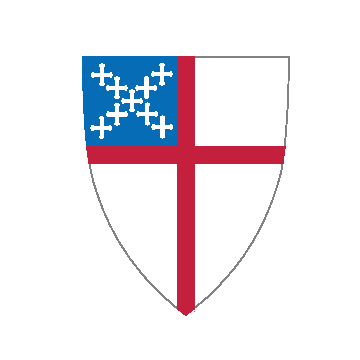Getting Involved
LITURGY
The church’s public worship of God. The term is derived from Greek words for “people” and “work.” The church’s public worship of God is the work of the Christian people. The life of Christ active in the church by the Spirit is expressed through liturgy.



ACOLYTES
In contemporary Anglicanism, a general term which covers not only servers, torchbearers, and lighters of candles but also crucifers, thurifers, and banner-bearers. Acolytes are mentioned as a minor order (along with porters, lectors, and exorcists) as early as a letter of Pope Cornelius to Fabius of Antioch in 252. They were also mentioned in Cyprian’s writings. They assisted deacons or subdeacons at the preparation of the table. Later they carried candles in processions. In Rome they carried fragments of the bread consecrated at the papal Mass to other churches. In the late middle ages, when candles began to appear upon altars, they lighted the altar candles. Eventually lay servers or sacristans performed duties earlier associated with acolytes, and the order of acolyte was normally conferred upon a candidate for priesthood in the course of his training. The minor orders were not perpetuated in Anglicanism. Some of the duties earlier performed by persons in the minor order of acolyte were taken over by lay clerks. In the later nineteenth century the clerks were suppressed and their duties were largely taken over by lay “acolytes” and sacristans or altar guilds, for more information contact Fr. Mike
ALTAR GUILD
A volunteer group of the parish whose ministry is to care for the altar, vestments, vessels, and altar linens of the parish. Altar Guild members prepare the sanctuary for services and clean up afterward. Altar Guild members frequently supervise the decoration of the sanctuary of the parish with flowers. For more information contact Ruby White.


FLOWER GUILD
Monthly coordinators lead the flower guild. Under the guidance of a lead arranger, a team of volunteers prepares flowers for Sunday and special services. Training is provided. Contact Ruby White for more information.
Lay Eucharistic Minister (LEM)
Lay person licensed by the bishop to administer the consecrated elements of the Eucharist. Lay eucharistic ministers may be licensed to administer the consecrated bread and wine at any celebration of the eucharist in the absence of a sufficient number of priests and deacons to assist the celebrant. They may also be licensed to go from a Sunday eucharist or other principal celebrations of the eucharist to share the sacrament with members of the congregation who were unable to be present at the celebration because of illness or infirmity. Lay eucharistic ministers may be licensed for either or both ministries. This ministry is understood to be an extraordinary ministry and is not to take the place of the ministry of priests and deacons concerning the administration of the Eucharist. Before the current lay ministry canons, specially licensed lay readers administered the chalice at the eucharist and were known as “chalice bearers.” Contact Fr. Mike for more information.

LECTORS
A layperson trained in reading scripture is appointed by the clergyperson in charge of the congregation to read lessons or lead the prayers of the people. The term is from the Latin, “to read.” There is no license required for this lay ministry. A lector may also be known as a reader. Lay persons served as readers in the early church. However, by the third century, this ministry was performed by those ordained to the minor order of lector (reader). The minor orders became steps leading to ordination to the priesthood. The reading of the gospel at the eucharist was the responsibility of the deacon by the fourth century. The lector read from the ambo (lectern) in the basilicas of the fourth and fifth centuries. Minor orders were not continued in Anglicanism. Contact Fr. Mike.
USHERS
Ushers greet and welcome our members and visitors, distribute service leaflets, and assist with seating and special needs. Contact Fr. Mike for more information.